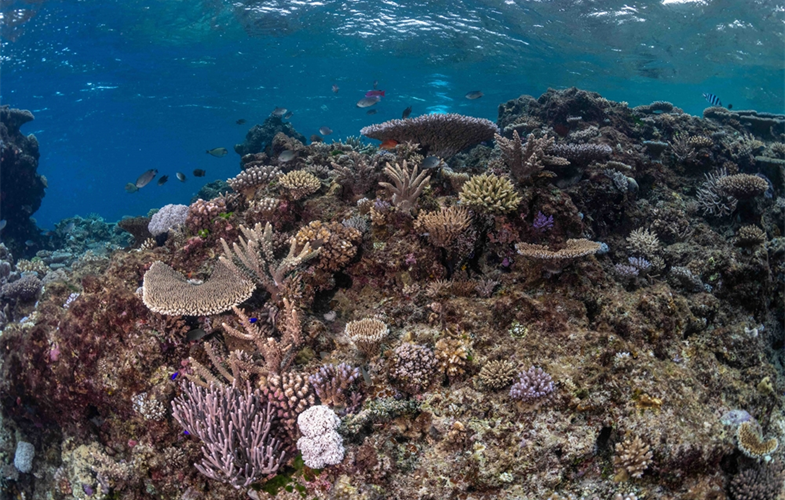A new scientific study has found that coral reefs in Fiji have made a remarkable recovery after the devastation caused by Category 5 Tropical Cyclone Winston in 2016 — the strongest storm ever recorded in the Southern Hemisphere at the time.
Led by the Wildlife Conservation Society (WCS), the University of the South Pacific (USP), and partners, the study revealed that despite losing more than half of their hard coral cover, many reefs rebounded to near pre-cyclone conditions within just four years.
The findings, published this week in the journal Coral Reefs, are based on data collected from 18 reef sites across two major barrier reef systems in Fiji before, immediately after, and four years following the cyclone.
Researchers documented a 54% average decline in hard coral cover in 2016 — primarily among branching and plating Acropora species — accompanied by a rise in rubble and turf algae. By 2020, coral communities had reassembled significantly, highlighting the resilience of Pacific reefs with strong ecological connectivity.
“This study shows that even after catastrophic damage, some reefs can bounce back if local conditions are favorable,” said Dr. Amanda Ford, lead author from the University of the South Pacific.
“Our research also shows just how valuable long-term monitoring is for understanding reef resilience. By tracking reefs before, during, and after one of the strongest cyclones on record, we were able to see how coral communities can recover when ecological conditions are strong.”
Using long-term survey data and wave modeling, the researchers linked reef damage to cyclone exposure levels. Sites directly in Winston’s path lost up to 91% of hard coral cover, while less-exposed reefs were more resilient. Crucially, by 2020, all sites showed strong recovery supported by abundant herbivorous fish populations and coral larvae from nearby reefs.
“This research is both timely and critically important given that Fiji is currently developing its National Action Plan for Coral Reefs,” said Dr. Sangeeta Mangubhai, co-author, Pew Marine Conservation Fellow, and member of the Fiji National Hub for Coral Reef Conservation.
“It sends a powerful message — local communities are essential to the successful management of our coral reefs.”
“We are finding more and more examples from both marine and terrestrial realms where ecosystems that start from high integrity baselines — with robust structure, function, and composition — can withstand and recover even from major climate shocks,” said Dr. Stacy Jupiter, co-author and Executive Director of WCS’s Global Marine Program.
“At a time when the news about coral reefs is often doom and gloom, these findings give us hope and a strong reason to continue investing in coral reef conservation where recovery is possible.”



